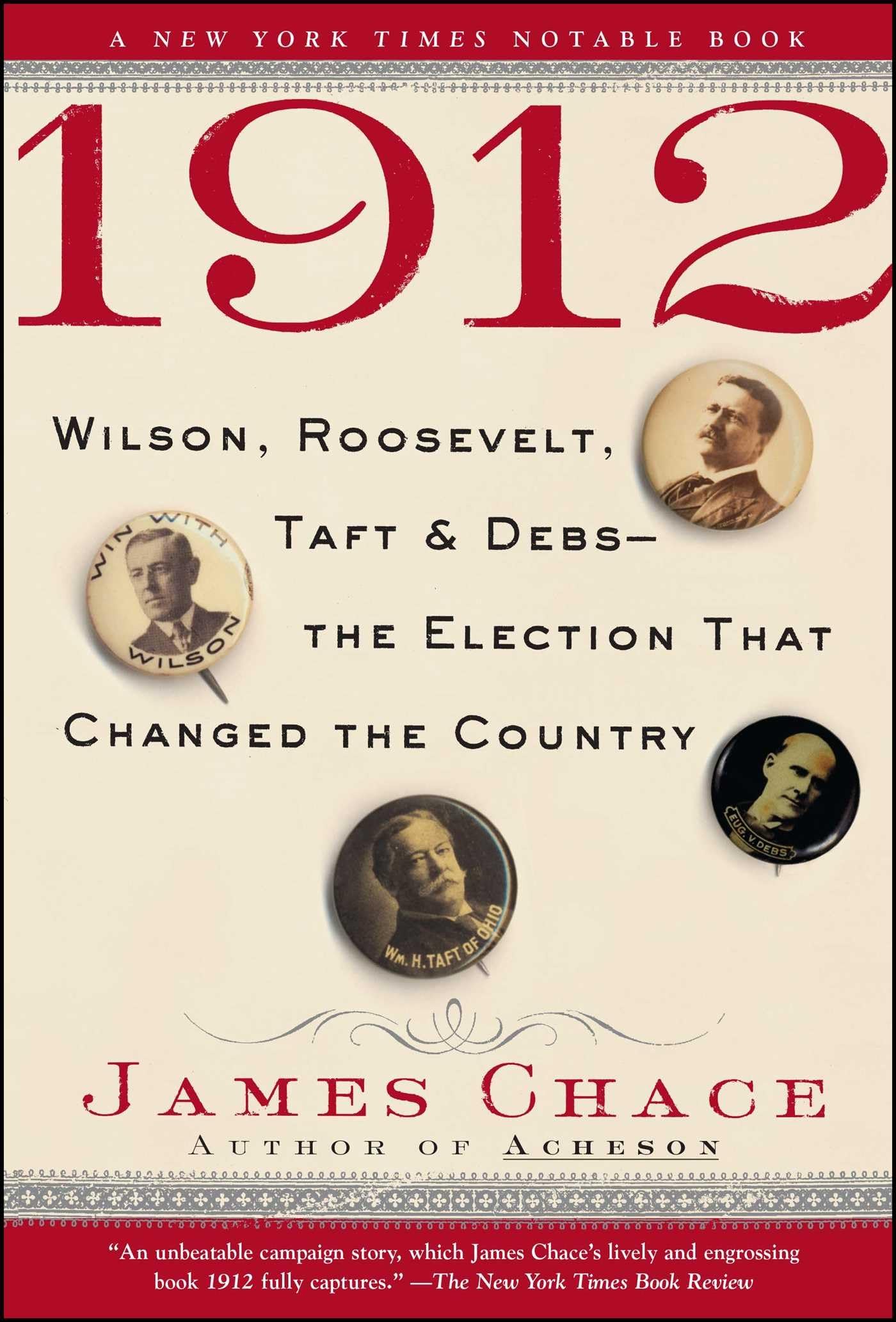Beginning with former president Theodore Roosevelt’s return in 1910 from his African safari, Chace brilliantly unfolds a dazzling political circus that featured four extraordinary candidates. When Roosevelt failed to defeat his chosen successor, William Howard Taft, for the Republican nomination, he ran as a radical reformer on the Bull Moose ticket. Meanwhile, Woodrow Wilson, the ex-president of Princeton, astonished everyone by seizing the Democratic nomination from the bosses who had made him New Jersey’s governor. Most revealing of the reformist spirit sweeping the land was the charismatic socialist Eugene Debs, who polled an unprecedented one million votes. Wilson’s “accidental” election had lasting impact on America and the world. The broken friendship between Taft and TR inflicted wounds on the Republican Party that have never healed, and the party passed into the hands of a conservative ascendancy that reached its fullness under Reagan and George W. Bush. Wilson’s victory imbued the Democratic Party with a progressive idealism later incarnated in FDR, Truman, and LBJ. 1912 changed America. "Illuminating and absorbing....An engrossing narrative that is essential reading." -- Ronald Steel, The New York Review of Books One of the "Best Books of 2004." -- Los Angeles Times Book Review "A brisk, consistently entertaining narrative that is alive both to politics and personality." -- Michael Kazin, Washington Post Book World James Chace was the Paul W. Williams Professor of Government and Public Law at Bard College. The former managing editor of Foreign Affairs and the author of eight previous books, most recently Acheson, he passed away in October 2004. Prologue: The Defining Moment To Woodrow Wilson, it seemed the cheering would never end. The president had sailed to Europe three weeks after the Armistice that had halted the savage killing of the First World War. Now his task was to complete a peace treaty that would bring forth a League of Nations that he believed would prevent a great war from ever happening again. As the steamship George Washington reached the French seacoast of Brittany just before dawn on December 13, 1918, Wilson could see lights on the horizon as a flotilla of American warships sailed out to greet him. Nine battleships came abreast of the warship and the five destroyers that had accompanied the George Washington across the Atlantic. Each fired a twenty-one-gun salute to the president of the United States as Wilson's ship sailed toward the harbor at Brest. There was more to come. Two French cruisers and nine French destroyers came up from the south, firing their own salutes. By the time Wilson entered the harbor, shore batteries from the ten forts on both sides of the cliffs began firing salutes. The military bands on the top of the cliffs blazed forth with renditions of "The Star-Spangled Banner" and "La Marseillaise." Once the president and his wife were onshore, the mayor of Brest offered Wilson a parchment scroll, festooned with red, white, and blue ribbons, which contained the greetings of the city council. The Americans then climbed into open automobiles that took them up the cliff and on to the railroad station where French President Raymond Poincaré was waiting to escort them to Paris. Along the route American soldiers were standing at attention. As the train approached the French capital people swarmed the tracks waiting to welcome the American president. The next day, the largest number of Parisians ever to welcome a foreign leader packed the streets and boulevards. Under a clear autumn sky, from the church of the Madeleine to the Bois de Boulogne, they thronged the sidewalks and rooftops. Thirty-six thousand French soldiers formed lines to hold back the crowds. Flowers floated down on Mrs. Wilson when the entourage passed under a banner stretched across the Champs-élysées that proclaimed "Honor to Wilson the Just." For the first time in living memory, a carriage passed under the Arc de Triomphe. "No one ever had such cheers," the American journalist William Bolitho wrote, "I, who heard them in the streets of Paris, can never forget them in my life. I saw [Marshall] Foch pass, [Premier] Clemenceau pass, [British Prime Minister] Lloyd George, generals, returning troops, banners, but Wilson heard from this carriage something different, inhuman -- or superhuman. Oh, the immovably shining, smiling man!" For the rest of the month of December, similar scenes were repeated in England, including a trip north to Carlisle near the Scottish border where Wilson's mother was born and his grandfather had been a preacher before immigrating to America. Then back to Paris and on December 31 by the Italian royal train to Rome, where he was met with near hysterical demonstrations. Airplanes roared overhead as he rode with the king and queen through streets covered with golden sand from the Mediterranean, an ancient tradition of honoring heroes come to Ro













